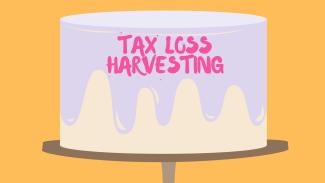
Losses Can Be Good
By Gary Silverman, CFP®
You may have heard that stock and bond markets are down. You may have also heard that bad situations can have silver linings. Today, let’s put the two together and start talking about Tax-Loss Harvesting.
Here’s the basic idea: You bought 10 shares of Netflix during the pandemic when it was selling for $470 per share. Happily, you saw that your $4,700 investment was worth $6,900 last Halloween. Knowing you had a winner on your hands, you began looking into finally upgrading your bathroom.
The bathroom is still waiting. Lately that initial $4,700 investment is now showing a $3,000 loss. You are no longer happy. But wait, there’s a silver lining! If you sell your Netflix stock, you will have “realized” that $3,000 loss, and you can deduct it from your taxes. Or at least you might be able to.
Tax-Loss Harvesting works only in your taxable account. Just as you do not pay taxes on gains inside an IRA or 401(k), you also do not deduct losses in them. (Yes, CPAs reading this, I do know there’s a way to take a loss in an IRA, but it applies to almost no one, so I’m not getting into that here.)
Next, your loss must be realized. In the example above, once Netflix went down to $170 per share, there was a $3,000 unrealized loss. Unrealized losses only make you sad—there is no silver lining. But in selling off those 10 shares, I realize the loss. In order to save taxes, you have to sell what went down in value.
But that brings up a problem. As you know, I don’t usually recommend selling when the market is down. Individual stocks are a little different since a company’s woes can be permanent. Still, if you like the prospects of Netflix, you may not want to sell the company. No problem, you say. You’ll just sell it Monday and buy it back Tuesday. This would be a “having your cake and eating it too” answer.
The IRS does not like your cake. There’s a rule which prevents you from selling one day and buying back the next; it’s called the Wash Sale rule. This prevents you from claiming a loss if you buy back the security within 30 days after you sold it (this does not apply to gains—the IRS gleefully gets to tax them). No problem, you say. You’ll just buy 10 more shares Monday and sell the original ones Tuesday. Sorry, the IRS is not stupid; the rule also covers replacement shares bought within the 30 days before you sell the originals for a loss.
We’ll review and give you some cautions next week.
May Ukraine stay free.
Gary Silverman, CFP® is the founder of Personal Money Planning, LLC, a Wichita Falls retirement planning and investment management firm and author of Real World Investing.

